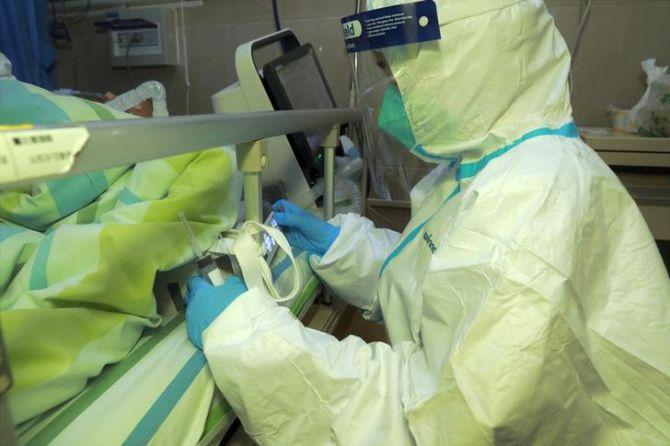Mutations making coronavirus more contagious: Researchers
June 30, 2020 12:20

About 70 per cent of the 50,000 genomes of the coronavirus that was uploaded by researchers have undergone mutations. Researchers from Northwest University's medical school in Chicago believe that mutation in the coronavirus has made it considerably more contagious.
At first glance, the mutations seemed trivial. About 1,300 amino acids serve as building blocks for a protein on the surface of the virus. But the locations of the mutation is significant because the switch occurred in the part of the genome that codes for the all-important "spike protein", The Washington Post reported.
In the mutant virus, the genetic instructions for just one of the amino acids switched in the new variant from a "D" (aspartic acid) to "G" (glycine)Egen Ozer an infectious disease specialist at the Northwestern University Feinberg School of Medicine, examined the genetic structure of virus samples from local patients, he noticed the mutations appearing again and again.
At least four laboratory experiments suggest that mutation makes the virus more infectious, although none of that work has been peer-reviewed.
"The epidemiological study and our data together really explain why the (G variant's) spread in Europe and the US was really fast," said Hyeryun Choe, a virologist at Scripps Research and lead author of an unpublished study on the G variant's enhanced infectiousness in laboratory cell cultures. "This is not just accidental."
"The bottom line is, we have not seen anything definitive yet," said Jeremy Luban, a virologist at the University of Massachusetts Medical School.
The novel coronavirus that causes COVID-19 can not live or reproduce on its own. So, it breaks into human cells and co-opts their biological machinery to make thousands of copies itself.
This replication process is messy. Even though it has a "proofreading" mechanism for copying its genome, the coronavirus frequently makes mistakes or mutations.
Ever since the genome of the virus was sequenced in January, scientists have been on lockout for changes that are meaningful. -- ANI





 © 2024 Rediff.com -
© 2024 Rediff.com -